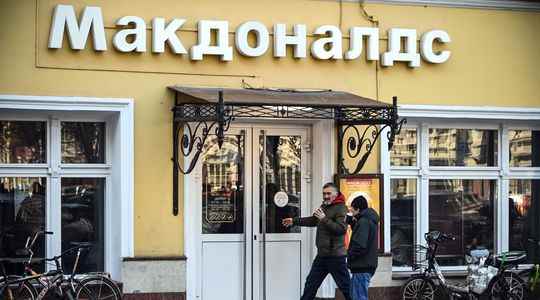After LVMH, Hermès and Chanel for luxury, BNP Paribas and Crédit Agricole in the banking sector, Land Rover and Volvo for the automotive sector, and in the wake of more than 400 other companies, major groups have announced in recent days , their departure from Russia.
On Monday May 16, the French automobile company Renault sold its assets to the Russian state and packed up. The same day, the famous fast food brand McDonald’s announced the closure of its 850 stores and the sale of its activities to a Russian businessman who already operated the group’s restaurants. A few days later, Starbucks, the American giant of takeaway coffee, made the decision to lower the curtain of its 130 brands and leave the territory.
Refusing to be associated with the abuses committed by the russian army by continuing to operate in this country, most of the major western brands are choosing to leave, at the cost of sometimes significant economic losses. Thus, McDonald’s realized in Russia 9% of its total turnover. A commercial pariah, Russia is also becoming an arid economic land, due to the sanctions imposed by the West and the unpredictable reaction of the Kremlin, which notably threatens to seize the foreign assets present on its soil.
These groups who opt for a happy medium
Many companies having decided to cease their activities in Russia therefore, like McDonald’s and Renault, entered into agreements to sell their assets to Russian buyers. This is the case of Schneider Electric, Shell, the Finnish food processing specialist Raisio and the Dutch employment services company Brunel International.
Some groups opt for a happy medium between the complete cessation of activity in Russia, which is too financially risky, and blindness to the situation in Ukraine, too cynical not to harm them. Thus, L’Oréal has suspended its industrial and advertising investments in the country but is keeping its production active. Its plant in Kaluga, south of Moscow, continues to manufacture shampoos and other hygiene products. Arguing the need to maintain a response “to the essential food needs of the local population”, Danone is also continuing its production.
Other companies, accused of acting as if nothing had happened, have been taken to task by the Ukrainian leaders, such as Leroy Merlin and TotalEnergies, whose interests in Russia are enormous. The latter is, for example, a shareholder in various Russian private companies. “Everyone is going to remember that values are worth more than profits,” Ukrainian President Volodymyr Zelensky said during his address to the French Parliament on March 23.
In their defense, these companies swear to respect international sanctions and believe that their departure would pave the way for an expropriation which would significantly strengthen Russia’s financial resources. And would also cause their own downfall.
